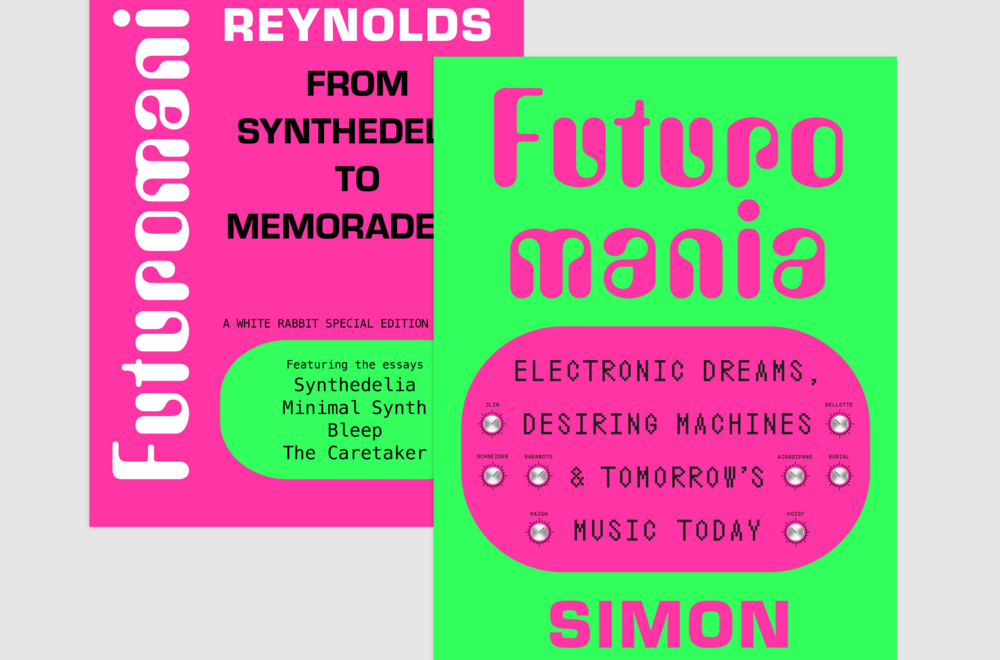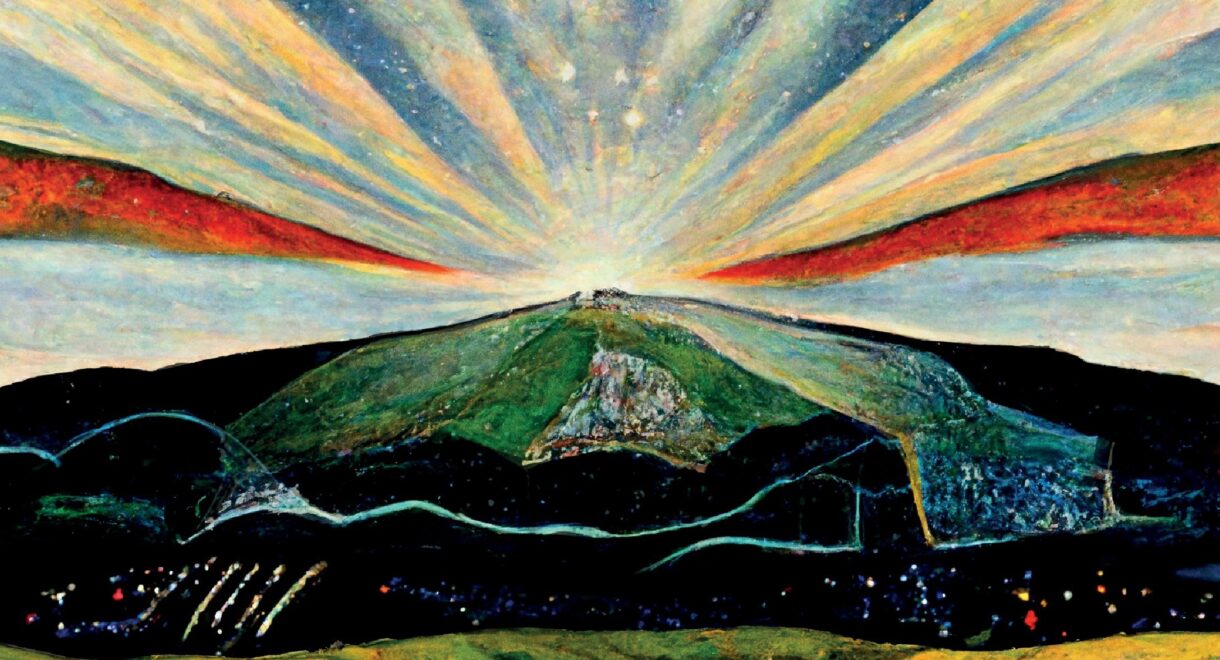The summer is halfway over and you’ve been scrolling for like, what, six weeks straight now? Step away from your phone (after reading this, of course). An analog […]
Stars of the Lid’s Brian McBride in his own words

Remembering a musician and thinker whose work created a singular kind of bliss.
When Stars of the Lid started releasing music in the mid-1990s, critics and tastemakers had a tough time wrangling their music. Founded after Nirvana upended the independent underground scene and born in the hip college town of Austin, Texas, the duo of Brian McBride and Adam Wiltzie were both part of that world — a few early records were issued on Butthole Surfers drummer King Coffey’s Trance Syndicate label — and outsiders uninterested in playing rock.
McBride, who whose death at 53 in Los Angeles was announced on Sunday, was vocal about the limitations of genre as a way of categorizing their music. Minus vocals, and the drums and steady rhythms that drive jazz, rock, blues and country music, Stars of the Lid’s music didn’t attempt to hook you with something toe-tapping and hummable or aggressively anti-anything, but worked to overwhelm your senses and environment with rich harmonics and free-floating sound waves that seemed to curl around the room like smoke drifting from a stagnant cigarette.
At various points they were dismissed as “new age” and wrestled with the term “post-rock,” which at the time was being used to describe bands like Tortoise, Godspeed You Black Emperor, Sigur Rós and other acts exploring expansiveness and constraint-free living.
McBride told 5 Questions‘ Steve Molter in 2017 that their motivation wasn’t to be “new” or “post” anything, and that their foundation was based on “the fact that we didn’t hear anything out there in the musical world that ultimately satisfied us.” Added McBride of growing up in 1980s Texas, “If you walk into grocery stores and feel surrounded by Stevie Ray Vaughn songs, you may want to go home and record on your four track if only to jar Stevie out of your head.”
One interviewer for eMusic during the group’s early years asked whether Stars of the Lid’s music could be considered new age. McBride’s reply?
There are a lot of similarities, but I think it’s more than just our titles than separate us from new age composers. I’ve thought about this a lot. I know that much of the new age music that I’ve heard I find somewhat lifeless, instrumentally and compositionally. What makes music part of a genre is a question for critics to answer. Early on, we were tarnished with the “post-rock” label. We’d tour and almost every interview wanted to ask us about post-rock and how we felt being post-rock or American post-rock.
All that said, Stars of the Lid weren’t making music in a vacuum, and by the time they committed to working with Chicago-based Kranky Records, they’d connected with a community of like-minded headz inspired by the work of Eno, Jon Hassell, and a strand of texture-based music that aimed to form a different kind of relationship with listeners. Check out this 20-minute 1996 performance at Other Music in New York.
https://www.instagram.com/reel/CwdXR76oe-h/?utm_source=ig_web_copy_link&igshid=MzRlODBiNWFlZA==
In that 5 Questions interview, McBride was also asked about his aesthetics:
Molter: You mention understanding that feeling of being profoundly affected by art. What are some specifics?
McBride: The last two Talk Talk records were super important to me. I remember the last year that I was living in Chicago. I’m a fan of 70s soft rock. I’m not going to hide it. I love it. I don’t know if it’s just the nostalgia factor or the tempo or something like watching films that were made in the 70s and earlier, they have that different kind of stock and production feel to it.
He continued:
But for every day that last year I was living in Chicago, I put on the last song on this 70s compilation called AM Gold. And it was ‘Send in the Clowns.’ I put it on right when my coffee was being made and I’d sit there and love the oboe and the horns. It was a big deal.
A deep, thoughtful conversationalist whose day job was as a debate professor at USC, McBride seemed eager to go deep on music, influence and history when talking to Wojtek Krasowski for his Infinitive Thing blog.
Krasowski: When I look into history of music, I wonder, why ambient and electronic music is so ignored? Brian Eno, Steve Reich or Holger Czukay – these people changed music in ’70s. But now young kids called this music BORING. How to change this situation? Do you have any ideas?
McBride: I wouldn’t say electronic music is really all that ignored. It depends on what someone does with it. Electronic dance music seems to have quite a lot people who flock to it. It sort of depends of the function of the music. If the people use it to get up or maintain energy, it seems to be more of a favoured medium. People need rock and dance music to satisfy a certain need, it’s kinda like a drug. That’s why Led Zeppelin is always going to sell more records than Eric Satie. I’m not trying to be disparaging about it. I recognize it. I used to think in terms of the “tyranny of the up.” But I don’t really mean that bemoan. There is no doubt that rock seems to have more use than classical music if you judge that sort of thing on the amount of people who consume it. But if the situation was reversed Stars of the Lid might not be here today…
How do we change the situation? I’m not really concerned by that. Steering culture is kind of a fool’s game. It seems like the more you try to push it a direction it slips away from you. I don’t really want to know what the kids know as long as those damn kids stay off my lawn. Do what you do because it matters to you not because other people should.
Krasowski noted that Stars of the Lid had been active for 14 years at that point, and asked him about deciding to work with Wiltzie at the beginning. His funny response revealed a side of the artist that wasn’t apparent in his music.
McBride: I saw Adam eat this taco once, I mean like fast. Like maybe three bites fast. Then a couple of hours later I heard these deep rumbling noises coming from the room that Adam was in. I came into the room thinking he was playing some music, but I found out it was just his stomach. Right then, I knew. I mean I knew this guy had digestion issues, and I thought, that’s the kind of guy I wanted to make music with.
The fantastic site Headphone Commute asked McBride in an undated interview what he’d been listening to lately. His response is basically a 5 Selects entry:
[W]hat kind of music do you have on rotation when you are at home?
It’s all over the map really. Lately I’ve been listening to: Roy Orbison’s Cry Softly Lonely One, The Moles’ Untune the Sky, Chet Baker’s Let’s Get Lost, Jack Nitzsche’s Three Piece Suite: The Reprise Recordings 1971-1973, and Stelvio Cipriani’s The Anonymous Venetian.
It should be noted that McBride’s work as a USC debate professor was as influential to his students as his music is to listeners. The USC Daily Trojan’s story on McBride’s passing offers a window into that world.
McBride started debating at Westbury High School in his home state of Texas and continued as an undergraduate at the University of Texas, where he received a first-round-at-large bid to the National Debate Tournament three years in a row, winning multiple tournaments and several top-five speaker awards.
The Trojan Debate Squad shared a message on Facebook on Sunday writing that their “hearts are broken” over the loss of their “coach, mentor and friend.”
“Brian was unlike anyone else. He was funny, quirky, sarcastic, incredibly smart and so kind. Regardless of when it happened, you didn’t forget that you spent time with Brian,” the post continued. “He left a big impression on each of us. So many Trojans benefitted from his genius and his kindness. We are so fortunate to have been able to know Brian and so deeply saddened.”
5 Questions‘ Molter asked an innocent question in his 2017 interview that’s a beautifully heartbreaking coda for an artist whose work affected so many in such profound ways:
Steve Molter: What will you miss the most when you’re gone?
McBride: Nothing because I’ll be gone [laughter]. Surprises. Maybe you’re in a matter of fact mood, you’re driving home from doing a bunch of errands, you see somebody walking their dog, and the cat has gone on the walk with dog and the owner, and she’s running past them, showing off, scratching the trees. And you suddenly take delight in that. The weird appreciation for the mundane or the banal. That’s what I’ll miss the most. The times when you can surprise yourself and notice things that seem quite matter of fact but are actually quite beautiful, depending on how you look at it.










